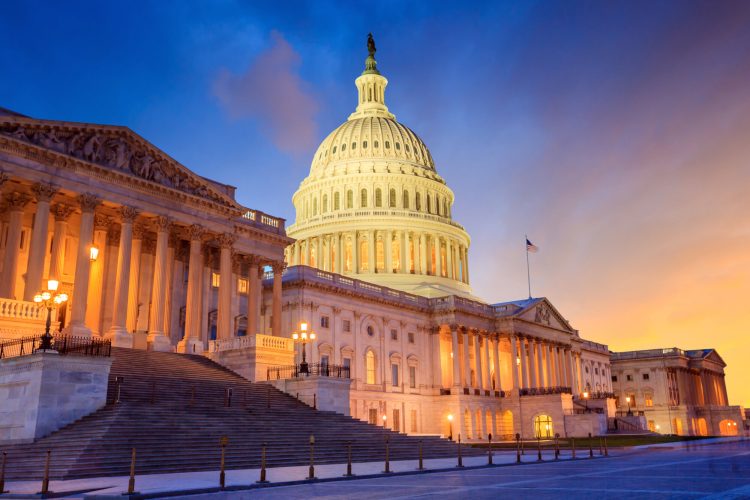This week on Facing the Future, we kicked off the 30th anniversary of The Concord Coalition’s founding by talking with Kitty Kurth, a veteran of the 1992 Paul Tsongas presidential campaign who would later that year become the first ever employee of The Concord Coalition. Kurth is currently president of Kurth-Lampe Worldwide, a political and management consulting firm in Chicago, and conducts democracy training all over the globe. Also joining us for this discussion was Concord Coalition national field director Phil Smith, who now holds the job first occupied by Kurth.
Senator Tsongas had a unique voice in American politics, though when he ran for the Democratic presidential nomination in 1992 many (including me) were skeptical about his chances. He had been out of politics for several years while battling cancer and had to contend with the belief in some quarters that the Democratic party didn’t need “another Greek from Massachusetts” following the defeat of Governor Mike Dukakis in 1988. The power of his message, however, carried Tsongas to several victories during the nomination contests, including the New Hampshire primary’ and helped set the party’s agenda.
Tsongas’ platform combined very liberal views on social issues and the environment with a pro-business economic approach and strong fiscal conservatism. He trumpeted the view that unsustainable growth in the national debt was choking off necessary investments the country needed to make to expand the economy and create the jobs of the future.
“I met Paul and like many people I read his campaign manifesto, An Economic Call to Arms,” said Kurth. “I thought his common sense approach to solving our problems and a Democrat who wasn’t afraid of giving business a boost so that working families could have good jobs at good wages – I thought his approach was very interesting. At the time, what I was really interested in – even more so than his fiscal ideas – was his approach to managed health care. And letting small businesses across the country join with small businesses in other states to have buying pools for health insurance to try to control costs and allow people to have better access to health care. As a small business owner, I was really intrigued by that.”
Kurth recalled how Tsongas wove together a desire to achieve progressive policy goals with the absolute need to get federal spending in line with revenues, balance the federal budget, and reduce the national debt to free up investment in the economy. She says Tsongas was an important voice in the 1992 presidential campaign and influenced the budget and economic policies of the ensuing Clinton administration. Because of his unique views, Tsongas was able to attract a following of people from a wide variety of political backgrounds who could agree on a common sense approach to solving problems. It was this momentum that led to the founding of The Concord Coalition, as Kurth explained in describing the coalition’s first meeting.
“People around the table were very conscious of widening economic inequality and all wanted to be part of the solution, they wanted to try to fix our economy. The thing with Paul Tsongas that people don’t remember is that it wasn’t that he wanted to get rid of the deficit and the debt for the sake of getting rid of the deficit and the debt. He wanted to make it so that we were not spending so much money on interest that we didn’t have money to spend on education or public policy. He wanted us to be smart in our spending so we could spend money on the right things.”
Kurth says it was this common ground that brought together Tsongas and his co-founders, Republican Senator Warren Rudman from New Hampshire and former US Commerce Secretary Peter G. Peterson, as well as a diverse array of supporters from across the political spectrum, to form The Concord Coalition.
Tsongas was not satisfied with The Concord Coalition being just another Washington DC based think tank that would occasionally issue white papers. He felt very strongly that the organization needed to have a national, grassroots presence, and Kurth as the coalition’s first staff member helped set up a field network in all 50 states within the first six weeks. Its mission was to educate the public on fiscal matters and keep the pressure on policy makers and politicians to focus on reducing our national debt and curb deficit spending. Kurth says America still needs this kind of education today, because the debt and income inequality have all grown substantially in the last 30 years.
“There is such a level of distrust between people like me out beyond the beltway, and people inside the beltway. There needs to be education at the basic level,” says Kurth. “One of the things that we used when I started at The Concord Coalition was the penny game, where you take 100 pennies, and you put them on each of the spots where you think government spending is. And now that we are in a pandemic, I think you could do really effective Zoom meetings with people from all different states and counties, rural and urban, young and old, and start doing those penny games, and get people to have a dialogue about how much of our federal budget really is spent on immigration, education, military spending, what do we really spend our money on, and as we build back better out of this pandemic, what do we want our country to look like?”
Current Concord Coalition national field director Phil Smith says this educational effort is the core of the federal budget exercise called “Principles and Priorities” which asks participants to make choices that impact the federal budget deficit and national debt.
“Our founders wanted real grassroots activity, they wanted education, particularly with young people,” says Smith. “So in our 30th year, we are planning to go to 30 college campuses across America, to run our budget exercise, to bring in policy experts, and to help educate people about this. Paul Tsongas used to reference another Paul – Paul Revere. Paul Revere didn’t sit still. He didn’t stay home and ring his bell from home. He got on his horse. And so in our 30th year we’re going to get on our horse and go to college campuses all over the country.”
Stay tuned for more details about some of the events we are planning to mark 30 years since the founding of The Concord Coalition, as the need to combat the threat to future economic growth brought about by unsustainable deficits and the growing national debt has become even more compelling.
Hear more on Facing the Future. I host the program each week on WKXL, NHTalkRadio.com (N.H.), and it is also available via podcast. Join me and my guests as we discuss issues relating to national fiscal policy with budget experts, industry leaders, and elected officials. Past broadcasts are available here. You can subscribe to the podcast on Spotify, Pandora, iTunes, Google Podcasts, Stitcher or with an RSS feed. Follow Facing the Future on Facebook, and watch videos from past episodes on The Concord Coalition YouTube channel.
Continue Reading






